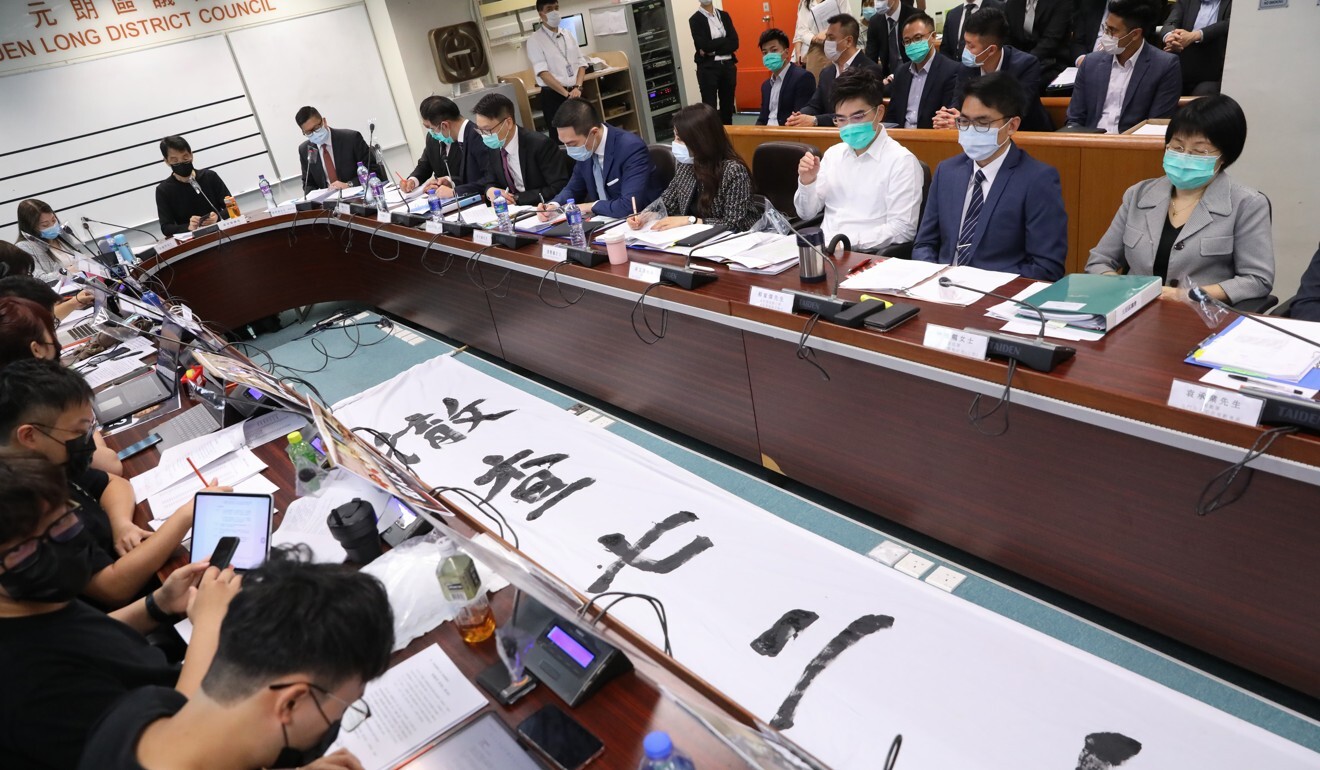
Hong Kong protests: police chief Chris Tang admits handling of journalists covering Mother’s Day demonstrations was unsatisfactory
- Commissioner says officers ‘should have been more professional’ in handling Sunday protest, vowing to review their practices in a meeting with journalists
- But he says they face increasing obstruction from self-proclaimed media workers donning press vests
Hong Kong’s police chief has admitted that his officers’ treatment of journalists covering anti-government protests on Mother’s Day was “unsatisfactory”, but said they faced increasing obstruction from self-proclaimed media workers in press vests.
Commissioner of Police Chris Tang Ping-keung vowed to meet media representatives next week to discuss ways to ease tensions between the press and the force, including the feasibility of an accreditation system for reporters.
His concession came a day after several major media associations, alongside a Chinese-language broadsheet, accused police of abusing and insulting reporters covering unrest in various locations on Sunday evening.
Tang was attending a meeting of Yuen Long District Council, which is now controlled by the opposition bloc.

Democratic Party councillor Roy Kwong Chun-yu, who was among some 230 people arrested on Sunday, said: “The way your officers treated media workers was akin to launching a terrorist attack on them. They were pepper-sprayed and ordered to kneel down. Is anyone being held accountable for that?”
Tang admitted the experience of journalists on Sunday was “unsatisfactory”.
“We will review the practices. We should have been more professional,” he said, though he questioned the authenticity of reporters at the scenes of recent protests, saying the force had seized fake press passes from some.
“I couldn’t tell whether all people in yellow vests were reporters. Some swore at officers and sexually insulted our female colleagues,” he said.
It was understood that the force planned to meet four media organisations – the Hong Kong Journalists Association (HKJA), the Hong Kong News Executives’ Association, the Hong Kong Press Photographers Association and the Hong Kong Federation of Journalists – next Thursday to discuss ways to improve relations, including the possibility of an official registration system for reporters.
In a letter to the four groups, Tang said he hoped to devise constructive solutions, amid what he said was a growing number of people donning yellow press vests to cover the protests, forming a big crowd which almost resembled a human wall, and hindering officers’ work.
Various journalists’ associations have previously rejected the idea of a reporters’ registry. HKJA chairman Chris Yeung Kin-hing on Monday noted that media workers in countries such as the United States also did not need accreditation.

The meeting will also be joined by Chief Secretary Matthew Cheung Kin-chung, according to Chief Executive Carrie Lam Cheng Yuet-ngor.
Speaking ahead of her weekly Executive Council meeting on Tuesday, the city leader said she hoped both sides could “have a frank and candid exchange”, adding that she hoped the talk would address the issue of student and voluntary reporters covering the social unrest.
“How can a 12-year-old handle such complicated and fast-changing scenarios? Why would someone think it is acceptable for underage reporters to carry out duties at the scene?” Lam asked. At Sunday’s protests, police detained two students in yellow vests, aged 12 and 16, who identified themselves as reporters. Officers took them to a police station and asked the youngsters’ parents to pick them up.
With coronavirus cases showing signs of levelling off in the city, the anti-government protests – sparked in June last year by the now-withdrawn extradition bill – have resurged.
Tang said on Tuesday it was worrying that 41 per cent of about 8,000 people arrested over the protests so far were students, of whom 60 per cent were from universities.
The Hong Kong Committee on Children’s Rights issued a statement on Monday expressing concerns over the reported arrests of many underage people.
“There are grave concerns in the community over the unnecessary use of force by police,” a spokesman for the committee said.
At the district council meeting, Szeto Pok-man of the Independent Democrats read out a statement on behalf of 33 opposition members, demanding that police increase efforts to hunt down those involved in the mob attack at Yuen Long railway station on June 21 last year.
Meanwhile, independent councillor Wilson Shum Ho-kit of the rival camp called on the force to go after protesters who joined rallies at the station on the 21st of every month for commemorations of the attack, which he called a “huge nuisance to the community”.
Tang replied that police enforced the law irrespective of residents’ political affiliations, adding that 37 people had been arrested over the mob attack. He criticised pro-democracy councillors for not condemning protesters’ illegal acts.
Police officers have been accused of not taking action for more than an hour after witnesses reported the attack, by a gang of white-clad men wielding sticks and rods, on activists coming back from a protest on Hong Kong Island, as well as other travellers.
But Tang defended the force’s actions that night. “Officers could have responded more quickly, but they also had to assess their own safety, considering rioters’ attacks on them two days before the incident,” he said.
Additional reporting by Kimmy Chung
Help us understand what you are interested in so that we can improve SCMP and provide a better experience for you. We would like to invite you to take this five-minute survey on how you engage with SCMP and the news.

